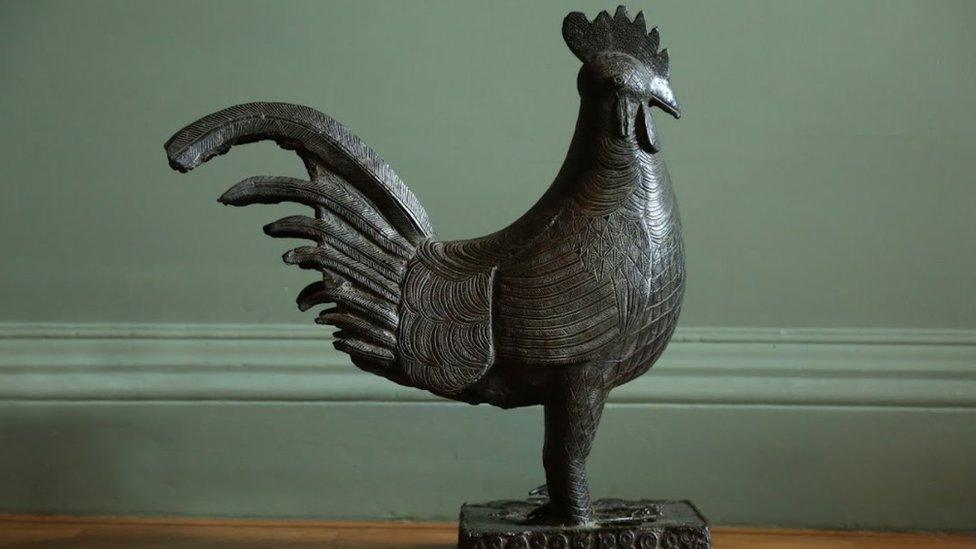Cambridge college memorial to slave trader will not be removed
- Published
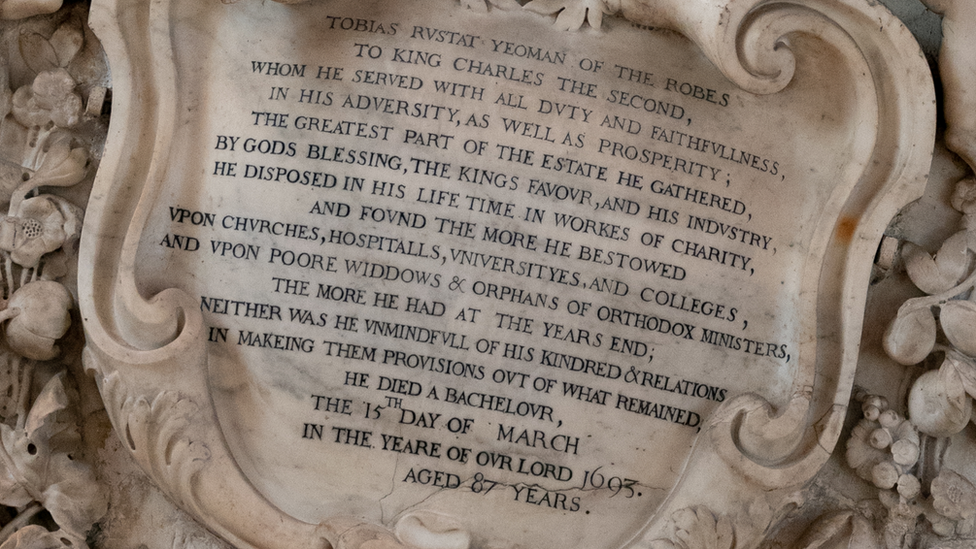
The inscription on the memorial to Tobias Rustat in Jesus College, University of Cambridge
A judge has dismissed a Cambridge University college petition to remove a memorial to a man who invested in the slave trade.
The memorial to Tobias Rustat, who invested in the Royal African Company, external, is on the chapel wall of Jesus College., external
The college has asked the Diocese of Ely, external if the plaque can be relocated.
David Hodge QC, Deputy Chancellor of the Diocese of Ely, said the petition was based on a "false narrative" about the source of Rustat's wealth.
The judgement from Justice Hodge followed a consistory court hearing, which administers ecclesiastical law in a diocese, external.
In his written conclusion, external, he said historians acting for the Rustat Memorial Group of alumni, which opposed the plaque's removal, had shown the case for taking down the plaque was the product of a "false narrative".
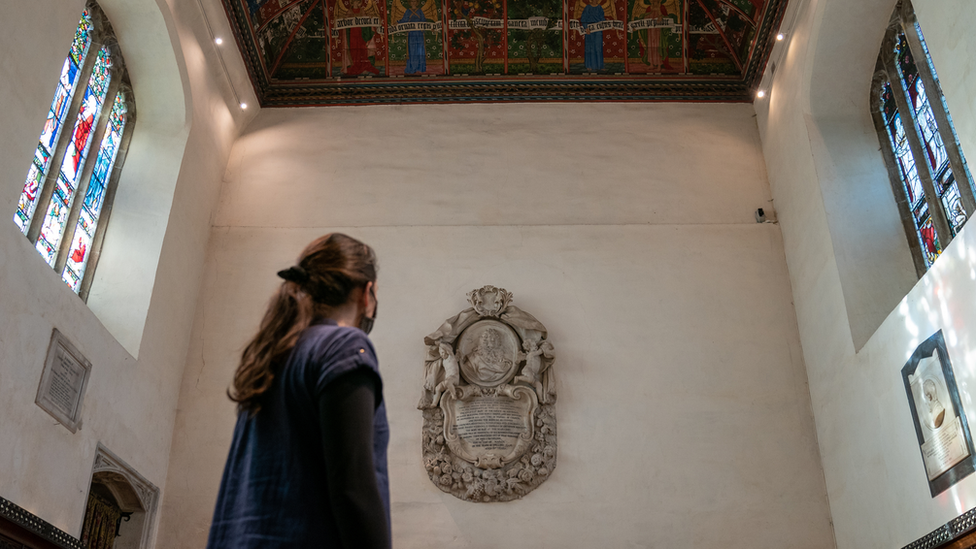
The memorial to Tobias Rustat in Jesus College, University of Cambridge
The judge said the "true position" was that Rustat's investments in the Company of Royal Adventurers Trading into Africa brought him "no financial returns at all", and he had only realised his investments in the Royal African Company in May 1691.
This was "some 20 years after he had made his gifts to the college, and some five years after the completion of the Rustat memorial and its inscription", the judgement said.
Petitioners wanted the memorial removed from the west wall of Jesus College Chapel and relocated to an exhibition space to be created in East House.
The college said it was "not seeking to cancel Rustat" but wanted the piece in "a more suitable place", the court was told previously.
Justice Hodge also concluded that removal would cause "considerable, or notable, harm" to the chapel's special architectural and historical interest.
He said that while he was aware any church building must be a "safe space", it did not mean it should be a place where one should "always feel comfortable or unchallenged".
"Otherwise one would have to do away with the painful image of Christ on the cross, or images of the martyrdom of saints," he said.
The judge said on entering a church a Christian would always ask God for forgiveness, extending that to those who sin against us, "and it even extends to slave traders".
"I would hope that when Rustat's life and career is fully and properly understood, and viewed as a whole, his memorial will cease to be seen as a monument to a slave trader," he said.
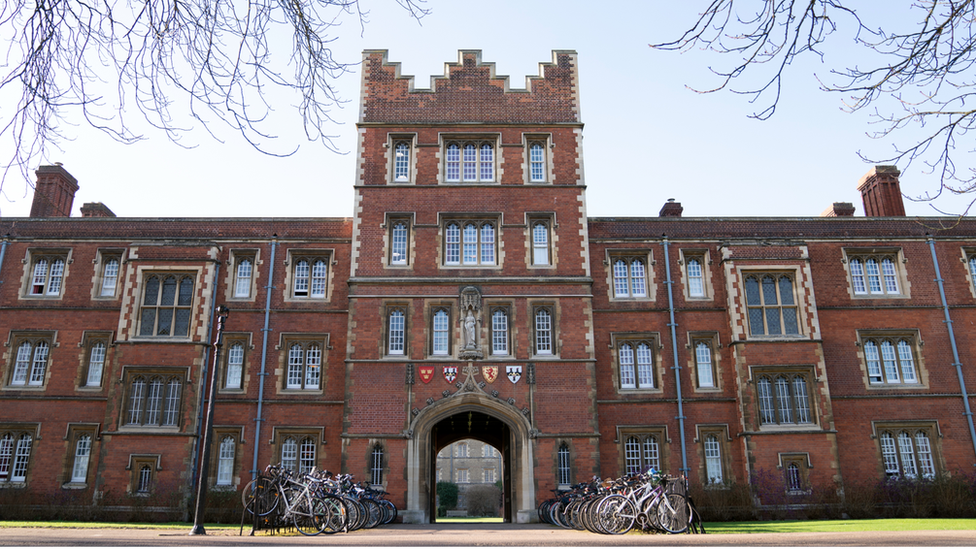
Jesus College at the University of Cambridge. The Rustat memorial is located in the college chapel
A statement from Jesus College said: "Rustat's involvement in the slave trade has never been in question.
"The widespread opposition to the presence of his memorial in the College Chapel is the result of this involvement and not any false narrative apparently created by the College about the sources of Rustat's wealth."

Find BBC News: East of England on Facebook, external, Instagram, external and Twitter, external. If you have a story suggestion email eastofenglandnews@bbc.co.uk, external
Related topics
- Published4 February 2022
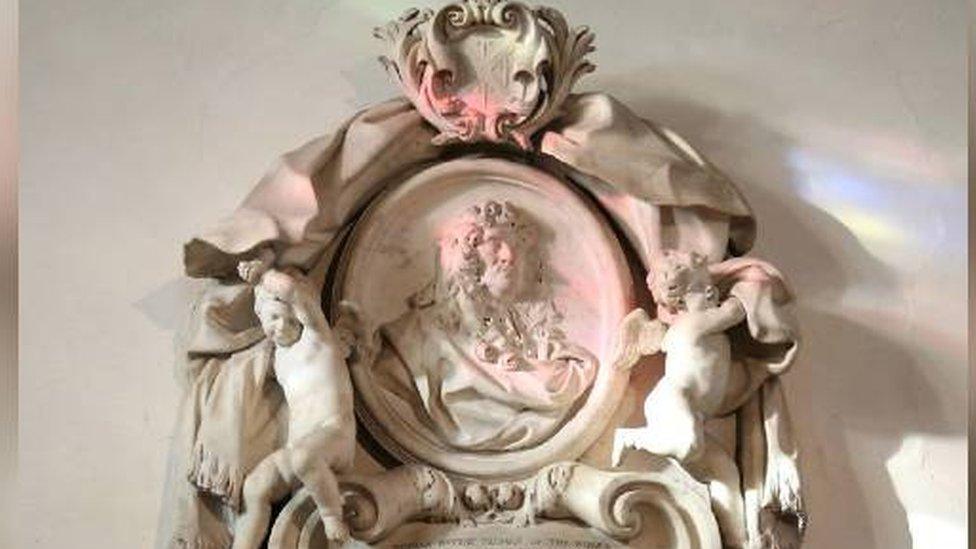
- Published3 February 2022
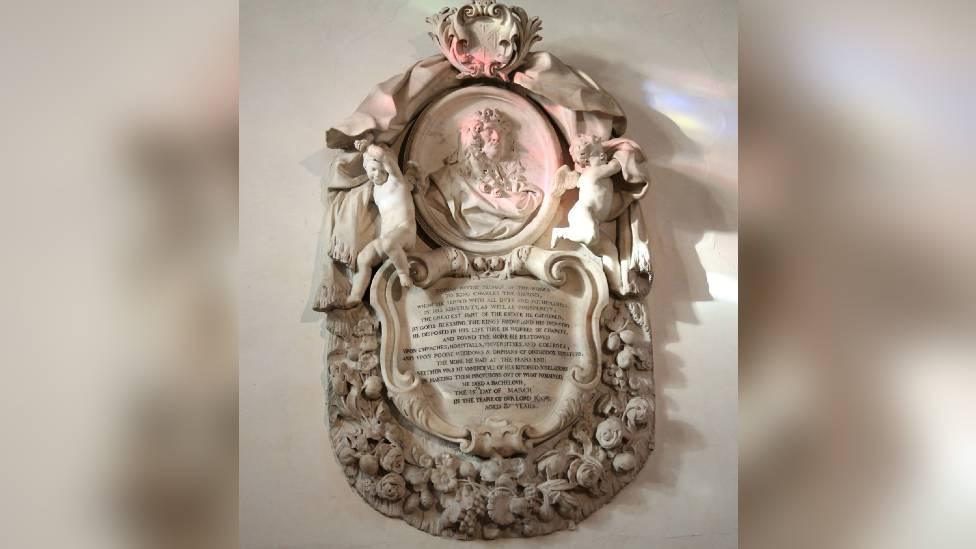
- Published24 January 2022
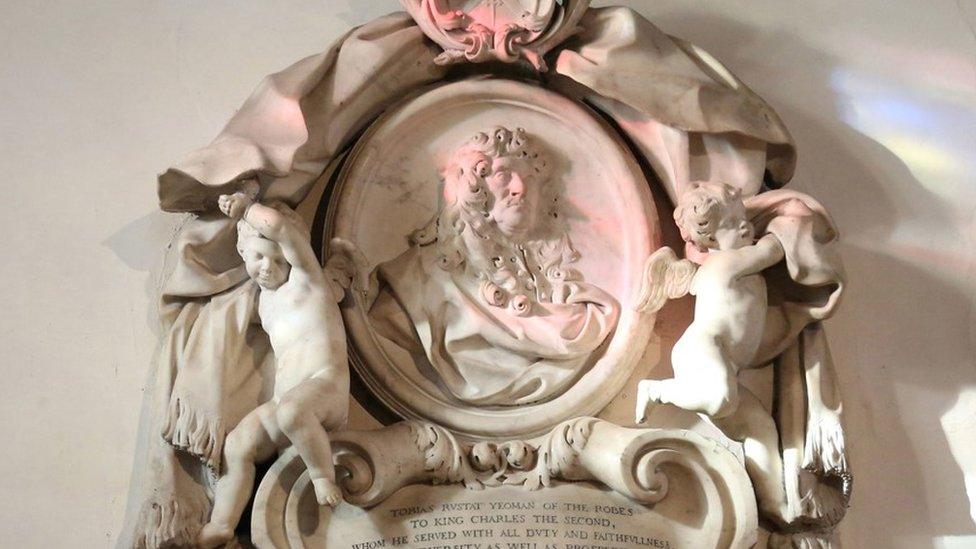
- Published27 October 2021
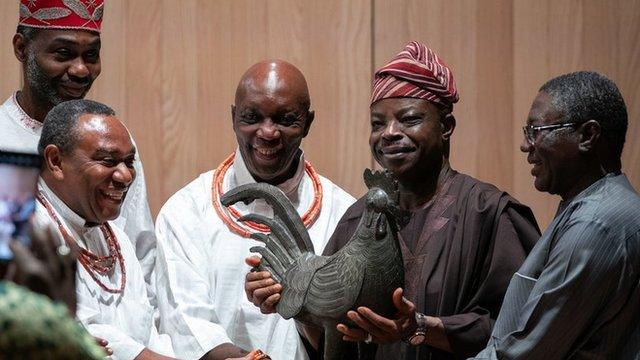
- Published15 October 2021
